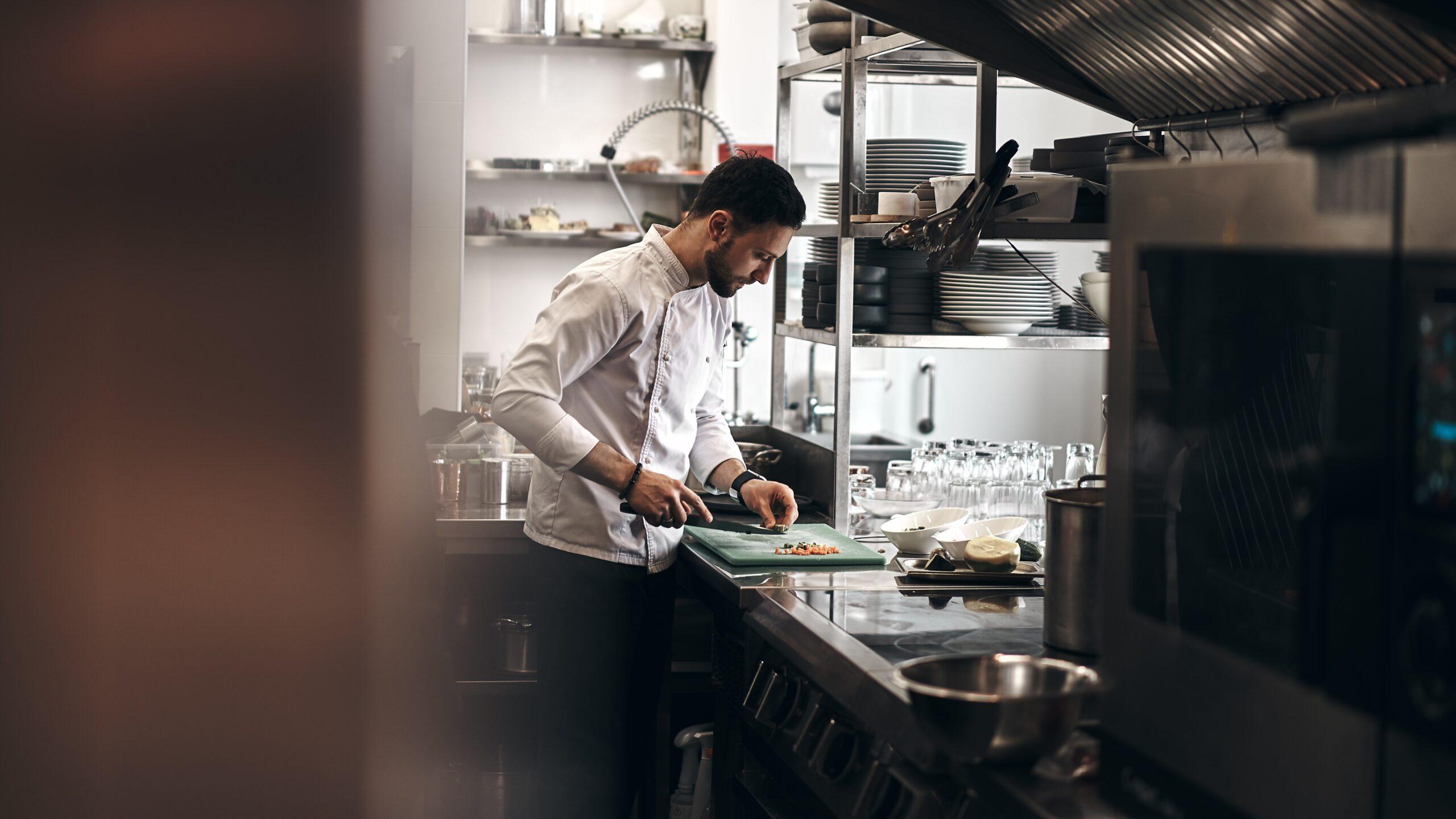If your TikTok feed looks anything like ours, you probably would have come across chef Thomas Straker’s All Things Butter series where he creates decadent and luxurious dishes with a focus on butter. While the TikTok star-turned-chef takes you around the world with his magnificent butter creations, his restaurant appears to take a less colourful approach when it comes to its staff.
The controversy began on Friday, July 28, when Straker shared an image of eight kitchen staff including himself outside his eponymous restaurant with the caption: “Chef team assembled”. While the image itself doesn’t scream offensive, viewers were quick to point out the lack of diversity in Straker’s team via the comments.
“One commenter eloquently stated: “The main issue is that in the most diverse city in the world, in the poorest part of the richest borough of the country, not only have you managed to (not) hire any female chefs but not a single POC”
One commenter eloquently stated: “The main issue is that in the most diverse city in the world, in the poorest part of the richest borough of the country, not only have you managed to (not) hire any female chefs but not a single POC”. Golborne Road is historically a black/Moroccan/Spanish/Portuguese community with an incredible history of culture and rebellion in the face of adversity. It became home to the largest Moroccan population in England and the home of Windrush families. (Group of people, primarily from the Caribbean, who migrated to the United Kingdom between 1948 and 1971 in response to a call for labour to help rebuild post-war Britain). How incredible would it be if you searched that community for young rising stars who may not get a chance to flourish otherwise in hospitality rather than hiring friends? Provide them with training and a safe place to grow as chefs. In turn, you’d be putting something into the very community that you’re gentrifying – intentional or not.
“While a majority of viewers critiqued the “pale, male, stale -ness” of the image, Straker struck back by saying: “Honestly people need to calm down. Firstly there is a shortage of chefs/hospitality workers. Secondly, if you feel so passionately please go and gather CVs of any chefs you think we’re missing in the team. Solutions not problems. Thank you”
While a majority of viewers critiqued the “pale, male, stale -ness” of the image, Straker struck back by saying: “Honestly people need to calm down. Firstly there is a shortage of chefs/hospitality workers. Secondly, if you feel so passionately please go and gather CVs of any chefs you think we’re missing in the team. Solutions not problems. Thank you.” Along with this comment, it was brought to public attention that he also privately messaged the founders of female-led supper club Mam Sham, Maria Georgiou and Rhiannon Butler calling them “bitter and twisted” for criticising his photo.
Following the controversy, Straker quickly apologised via Instagram, stating: “On Friday night I put up a post of my chef team and many rightly pointed out the lack of diversity within it. I am very sorry for my initial response, where some queried whether I take this issue seriously. I am absolutely committed to ensuring diversity in my restaurants, unfortunately, we aren’t achieving this in my kitchens currently and this is an area I know I need to improve on, making sure it is seen as a welcoming and approachable environment for all. Tom x”
While Straker apologised and has since deleted the Instagram post, this entire contention points to a bigger issue- the lack of diversity in the kitchen space.
In the Straker case, many defended the young chef’s moves by stating the shortage of kitchen staff and while this is a pressing issue, it cannot be an excuse to hide under. In a city like London, diversity is woven into the fabric of its identity; so recruiting and training more women and POCs is no impossible feat.
Domestic cooking is often associated with women’s work, yet the world of professional cooking is still dominated by men. Excuse us for stating the obvious but it is not because of the lack of talent or ability to thrive in the high-pressure environment. Women often find it difficult to get their foot in the door and the ones that actually do, often experience abuse in a multitude of forms. In a recent article by British Vogue titled It’s More Than Possible To Hire A Diverse Kitchen Staff. I Know Because I’ve Done It, chef Asma Khan discussed how men have made cooking into a combat sport and she believes that by creating a harsh, almost brutal environment, they are distancing themselves from the typically “feminine” energy that cooking in the home is often associated with. She also stated: “Women, after all, are the custodians of recipes. When you ask people what their favourite dish is, they almost always name one made by their mother or grandmother, so why is that familial softness so often absent from professional kitchens?”
Leave alone the social responsibility to be inclusive, diversity benefits kitchens as it fosters curiosity and a fresh perspective. Chef Nick Fisell wrote for the Taste of Harmony, AU: “As a chef, the more techniques you can learn from the different cultures you experience, the better your repertoire becomes. It broadens your horizons more than anything else. It gives you the gift of knowledge from places you haven’t even visited. That’s tremendous.”
While the exclusively all-white all-male club is what we’ve learnt to associate with chefs, times are changing. We all know the power of media and the popular TV show The Bear showed us what a successful, diverse kitchen can look like. While it’s true that the lead protagonist is a white male, it’s heartwarming to see different cultures come together and you can’t help but root for every character. Maybe it’s time for Straker to take some cues from the show.






